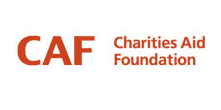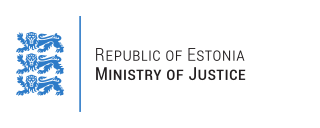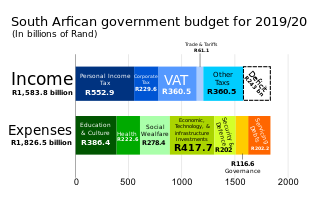A nonprofit organization (NPO), also known as a nonbusiness entity, nonprofit institution, or simply a nonprofit, is a legal entity organized and operated for a collective, public or social benefit, as opposed to an entity that operates as a business aiming to generate a profit for its owners. A nonprofit organization is subject to the non-distribution constraint: any revenues that exceed expenses must be committed to the organization's purpose, not taken by private parties. Depending on the local laws, charities are regularly organized as non-profits. A host of organizations may be nonprofit, including some political organizations, schools, hospitals, business associations, churches, foundations, social clubs, and consumer cooperatives. Nonprofit entities may seek approval from governments to be tax-exempt, and some may also qualify to receive tax-deductible contributions, but an entity may incorporate as a nonprofit entity without having tax-exempt status.

A donation is a gift for charity, humanitarian aid, or to benefit a cause. A donation may take various forms, including money, alms, services, or goods such as clothing, toys, food, or vehicles. A donation may satisfy medical needs such as blood or organs for transplant.
A foundation is a type of nonprofit organization or charitable trust that usually provides funding and support to other charitable organizations through grants, while also potentially participating directly in charitable activities. Foundations encompass public charitable foundations, like community foundations, and private foundations, which are often endowed by an individual or family. Nevertheless, the term "foundation" might also be adopted by organizations not primarily engaged in public grantmaking.

Fundraising or fund-raising is the process of seeking and gathering voluntary financial contributions by engaging individuals, businesses, charitable foundations, or governmental agencies. Although fundraising typically refers to efforts to gather money for non-profit organizations, it is sometimes used to refer to the identification and solicitation of investors or other sources of capital for for-profit enterprises.

A charitable organization or charity is an organization whose primary objectives are philanthropy and social well-being.

Religious activities generally need some infrastructure to be conducted. For this reason, there generally exist religion-supporting organizations, which are some form of organization that manages:
Gift Aid is a UK tax incentive that enables tax-effective giving by individuals to charities in the United Kingdom. Gift Aid was introduced in the Finance Act 1990 for donations given after 1 October 1990, but was originally limited to cash gifts of £600 or more. This threshold was successively reduced in April 2000 when the policy was substantially revised and the minimum donation limit removed entirely. A similar policy applies to charitable donations by companies that are subject to the UK corporation tax.
This article describes the various laws related to non profit organisations in India. A non profit organisation can be registered in India as a Society, under the Registrar of Societies or as a Trust, by making a Trust deed, or as a Section 8 Company, under the Companies Act, 2013.
Laws regulating nonprofit organizations, nonprofit corporations, non-governmental organizations, and voluntary associations vary in different jurisdictions. They all play a critical role in addressing social, economic, and environmental issues. These organizations operate under specific legal frameworks that are regulated by the respective jurisdictions in which they operate.

The Charities Aid Foundation (CAF) is a registered UK charity that operates in the United Kingdom, the United States of America and Canada. It works with companies, private philanthropists, regular donors, fellow foundations, governments, charities and not-for-profit enterprises to enable them to give more. Its stated purpose is to “accelerate progress in society towards a fair and sustainable future for all.”
A 501(c)(3) organization is a United States corporation, trust, unincorporated association or other type of organization exempt from federal income tax under section 501(c)(3) of Title 26 of the United States Code. It is one of the 29 types of 501(c) nonprofit organizations in the US.

The Estonian Ministry of Justice is the Ministry of Justice of Estonia. The Minister of Justice is the senior minister at the Ministry of Justice in the Estonian Government. The Ministry is responsible for providing support to the court system and providing legal focus in proposing new laws.
Taxes in Switzerland are levied by the Swiss Confederation, the cantons and the municipalities.
The tax legislation of Azerbaijan is comprised by the Constitution of Azerbaijan Republic, the Tax Code and legal standards which are adopted herewith. The taxes levied in Azerbaijan can be generally broken down into 3 main types: state taxes, taxes of autonomy republic and local (municipal) taxes. State taxes include the following: personal income tax, corporate tax, value added tax, excise tax, property tax, land tax, road tax, mineral royalty tax and simplified tax. Taxes of autonomy republic are the same as state taxes but levied in Nakhichevan Autonomous Republic.
A charitable organization in Canada is regulated under the Canadian Income Tax Act through the Charities Directorate of the Canada Revenue Agency (CRA).

Taxation may involve payments to a minimum of two different levels of government: central government through SARS or to local government. Prior to 2001 the South African tax system was "source-based", where in income is taxed in the country where it originates. Since January 2001, the tax system was changed to "residence-based" wherein taxpayers residing in South Africa are taxed on their income irrespective of its source. Non residents are only subject to domestic taxes.
Gambling in Estonia is relatively young. While Estonia was a part of the USSR, all types of gambling activities were banned. Despite the prohibition, illegal casinos still functioned, but the real history of gambling started in 1994-1995 when the first Lottery Act of 1994 and the first Gambling Act of 1995 came into power. As the capitol, Tallinn has more casinos than any other Estonian town. As of September 2010, there were 33 casinos in Tallinn. That's 3 times less than in 2008, when 91 gambling venues operated in this city. According to experts, the main reasons for such decrease were the consequences of the crisis and the adoption of the new gambling law in 2008. The legal age for playing at casinos is 21.

Taxes provide an important source of revenue for various levels of the Government of the Republic of China. The tax revenue of Taiwan in 2015 amounted NT$2.1 trillion.
Taxation in Estonia consists of state and local taxes. A relatively high proportion of government revenue comes from consumption taxes whilst revenue from capital taxes is one of the lowest in the European Union.
Taxes in Bulgaria are collected on both state and local levels. The most important taxes are collected on state level, these taxes include income tax, social security, corporate taxes and value added tax. On the local level, property taxes as well as various fees are collected. All income earned in Bulgaria is taxed on a flat rate of 10%. Employment income earned in Bulgaria is also subject to various social security insurance contributions. In total the employee pays 13.78% and the employer contributes what corresponds from 18.92% to 19.62%. Corporate income tax is also a flat 10%. Value-Added Tax applies at a flat rate of 20% on virtually all goods and services. A lower rate of 9% applies on only hotel services.







